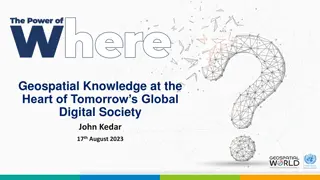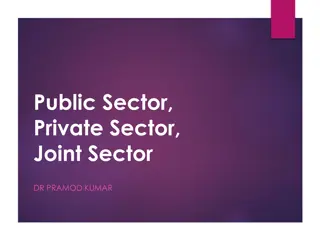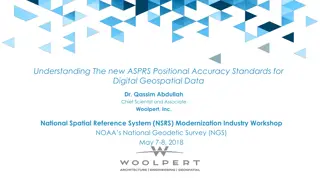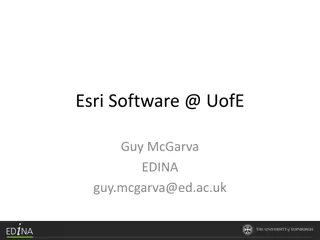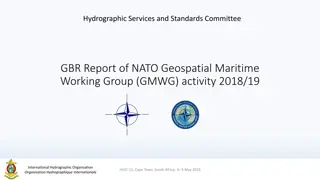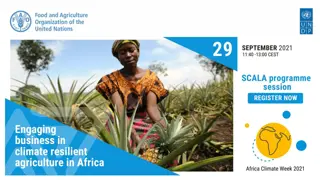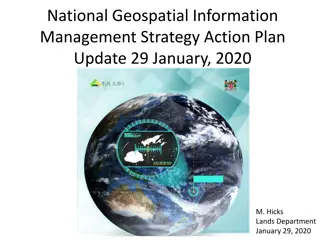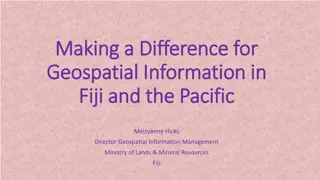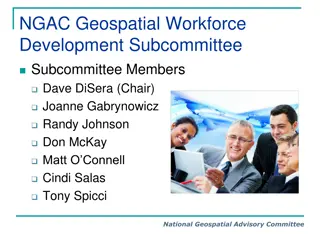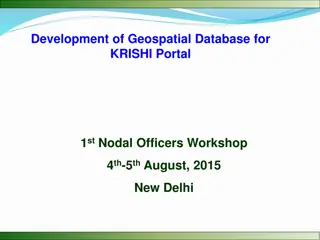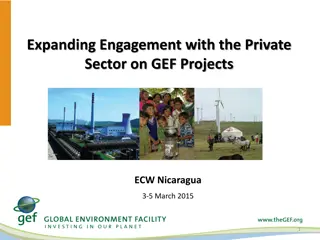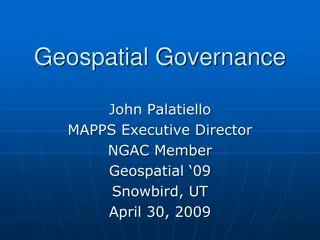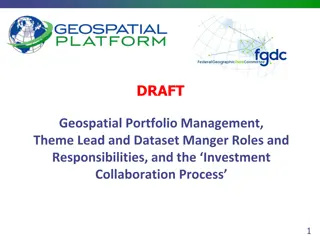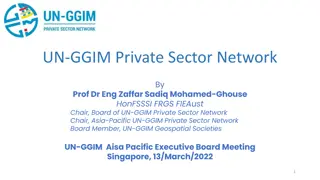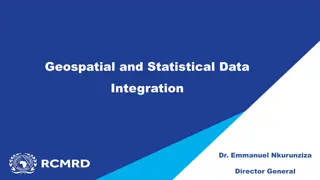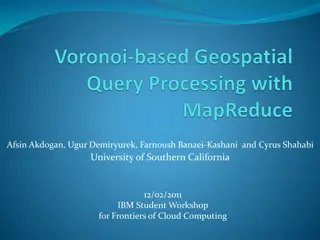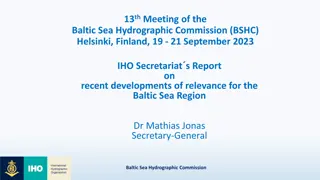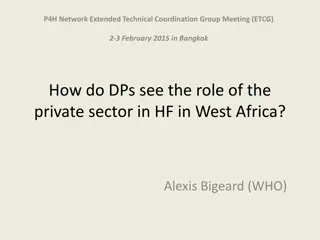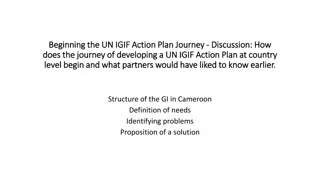Geospatial Private Sector in Africa: Opportunities and Challenges
The geospatial private sector in Africa faces challenges due to its small and disjointed nature, with a focus mainly on multinational corporations. Initiatives like UN-GGIM are encouraging private sector participation at national and continental levels. Efforts are being made to include the private sector in National Spatial Data Infrastructure (NSDI) and promote public-private partnerships (PPPs) in geospatial infrastructure and remote sensing sectors. Capacity-building, technical assistance, and exploring partnership models are key focus areas for the future geospatial ecosystem in Africa.
Download Presentation

Please find below an Image/Link to download the presentation.
The content on the website is provided AS IS for your information and personal use only. It may not be sold, licensed, or shared on other websites without obtaining consent from the author. Download presentation by click this link. If you encounter any issues during the download, it is possible that the publisher has removed the file from their server.
E N D
Presentation Transcript
GEOSPATIAL PRIVATE SECTOR IN AFRICA SECTEUR PRIV G OSPATIAL EN AFRIQUE UN-GGIM: Africa, 2022
Some points: 1. The private sector in Africa is still small, and largely disjointed. In many instances only the multi-nationals are noticeable. 2. UN-GGIM and UN-GGIM: Africa includes the private sector and provides the opportunity for the private sector to contribute to the various meetings. This is note-worthy. 3. At the national level in Africa the experience appears to be that the NSDI does not include the private sector. It is hoped that as countries progress with adopting IGIF that the private sector will be included.
https://wgicouncil.org/publication/reports/ policy-reports/download-report-enabling- geospatial-ecosystem-unggim-igif/
Africa Geospatial PPPs Africa Geospatial PPPs Africa Geospatial Partnerships How to Guide & Best Practices
WGIC WGIC - - PPP Committee FOCUS: 2022 PPP Committee FOCUS: 2022- -23 23 Africa Geospatial PPPs Take the 5-minute survey There are strong needs and compelling stories for the development and support of Geospatial Infrastructure and Remote Sensing/Earth Observation Sectors with Public- Private Partnerships (PPPs) in Africa http://www.empliant.com/survey/F3246B3F4- 97C1-B6AC-47BA/ Scan the QR CODE The UN-GGIM Africa is supporting the WGIC to explore the potential partnership models in Africa and bring out Africa Geospatial Partnerships A How to Guide by mid-2023
UN-GGIM: Private Sector Network - Capacity building and technical assistance - Work with member countries to unpack the SDGs, and assist the countries to accelerate their data collection and reporting strategies. This would be in the form of success stories from other areas, case studies on where it is working etc. - Looking at 3 areas globally: a.The Future Geospatial Ecosystem (stakeholders, role-players, skills, data acquisition, analytics etc) b.Technology Trends and Innovation (including the likes of space sustainability, geospatial solutions, digital twins/BIM) c. PPP opportunities tied into the work of the WGIC - Updating the membership of the PSN, and now making available online all PSN documentation and artefacts (http://unggim-psn.org/index.html)







